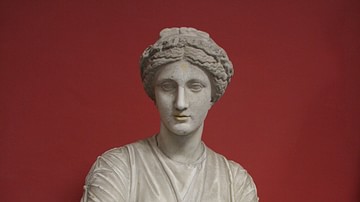Review

| Rating: | |
|---|---|
| Title: | Institutionalizing Gender: Madness, the Family, and Psychiatric Power in Nineteenth-Century France |
| Author: | Jessie Hewitt |
| Audience: | Professional |
| Difficulty: | Medium |
| Publisher: | Cornell University Press |
| Published: | 2020 |
| Pages: | 252 |
Jessie Hewitt's "Institutionalizing Gender" ties together themes of French society, psychiatry, the family, and gender analysis into one seminal text. Intended for a professional audience, this book is broken down into six unique chapters that each look at a facet of French psychiatric society and gender. Recommended for historians of institutions and psychiatry, this book is a great example of work in the field.
Jessie Hewitt’s Institutionalizing Gender: Madness, the Family, and Psychiatric Power in Nineteenth-Century France ties together themes of French society, psychiatry, the family, and gender analysis into one seminal text. Hewitt works to answer several questions in this book, including how the asylum influenced bourgeois gender during the 19th century, how madness influenced gender norms, and the role of gender in the origins of psychiatry, as impacted by the discipline’s founders, Philippe Pinel and Jean-Etineene Dominique Esquirol. The author's intervention in history is not a bottom-up process as she argues, despite being partially from the patient’s perspective, but it rather allows mental patients to engage in conversations about insanity as “active and necessary participants."
Hewitt’s text is broken down into six chapters, each analyzing a different aspect of French psychiatry. Chapter One looks into gender in the treatment of insanity according to Philippe Pinel and Jean-Etienne Dominique Esquirol, the "fathers" of French psychiatry. This chapter follows the experience of the patient, beginning with the onset of mental illness and ending with the enactment of moral treatment. Chapter Two then looks at the use of the cold shower treatment and its relationship with masculinity. In Chapter Three, the book analyzes feminine domesticity, a bourgeois element, and private mental institutions. The fourth chapter delves into the decline of moral treatment and unjust institutionalization. The fifth chapter studies the disruptive events of the century in France and how these promoted new ideas of psychiatric masculinity. Lastly, the sixth chapter explores the change of moral treatment to incurable insanity and gender-based methods. The chapters are also chronological in nature.
One key conversation that Hewitt has in this text is that of cold baths and masculinity. She begins with a vignette about Alexis Bourgeois, who attempted to murder his former asylum doctor, M. Bleynie, for subjecting him to cold baths. This came around the time that a law was passed in France that allowed for a nationwide asylum system, which encouraged debate about applying cold baths and cold water to the face in order to cure patients of delusions. Hewitt posits that this rose debates about professional honor and psychiatric paternalism. As she shows, the debates fizzled out, but largely sided against cold showers, even though they were still utilized by some.
This book is clearly intended for scholars based on the language that is utilized. At times heavy, the language is meant for an audience of a higher caliber. However, it would also serve graduate students well who are interested in the history of mental institutions. While there is heavy academic jargon at times, this book remains a great title for anyone who is interested in the history of madness, gender, and mental institutions. This text is recommended as a staple of the history of madness and institutionalization, particularly with its lens on gender and French society.
Jessie Hewitt teaches European and world history at the University of Redlands and focuses on gender, disability, medicine, and culture. Often researching the relationship between disability and gender in France, this work is situated well into her wheelhouse and is her first book.
About the Reviewer
Cite This Work
APA Style
Holtkamp, M. (2023, June 16). Institutionalizing Gender: Madness, the Family, and Psychiatric Power in Nineteenth-Century France. World History Encyclopedia. Retrieved from https://www.worldhistory.org/review/367/institutionalizing-gender-madness-the-family-and-p/
Chicago Style
Holtkamp, Megan. "Institutionalizing Gender: Madness, the Family, and Psychiatric Power in Nineteenth-Century France." World History Encyclopedia. Last modified June 16, 2023. https://www.worldhistory.org/review/367/institutionalizing-gender-madness-the-family-and-p/.
MLA Style
Holtkamp, Megan. "Institutionalizing Gender: Madness, the Family, and Psychiatric Power in Nineteenth-Century France." World History Encyclopedia. World History Encyclopedia, 16 Jun 2023, https://www.worldhistory.org/review/367/institutionalizing-gender-madness-the-family-and-p/. Web. 27 Apr 2025.




